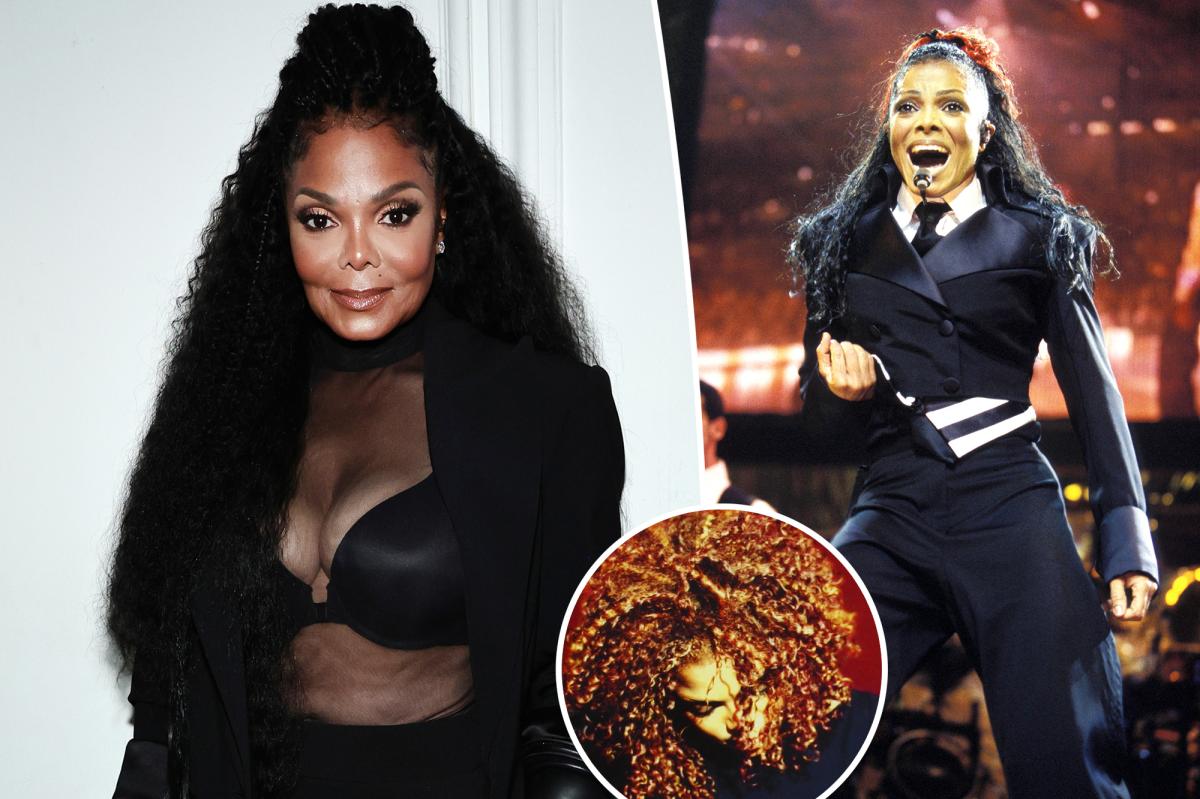In public, Janet Jackson was at the top of the world in 1996. She had just released a platinum-selling greatest hits album celebrating the first decade of her already illustrious music career and signed an unprecedented $80 million deal to renew her recording contract.
But privately, the then 29-year-old superstar struggled with depression so debilitating that she fled multiple recording sessions for her next album in tears.
“[I] couldn’t get up sometimes,” she later told Newsweek. “There were times when I felt very hopeless and helpless and it felt like walls were coming down on me.”
Jackson’s studio breakdowns were so frequent that the album she worked on took six months—a lifetime compared to her 1986 breakout, “Control,” which she made in just two months.
“I had to take a lot of breaks because it was too overwhelming at times,” she admitted.
However, that blues produced one of the boldest and best albums not only in Jackson’s discography but also in music history: “The Velvet Rope,” released 25 years ago on October 7, 1997.
Jackson had already started dipping her toes into sex symbolism with her 1993 album ‘Janet’, but she really let her freak flag fly on ‘The Velvet Rope’, tackling taboo topics such as same-sex relationships, masturbation, BDSM. , domestic violence and family trauma. Gone was the King of Pop’s little sister, the one who made her name with the lead roles in sitcoms like ‘Good Times’ and ‘Diff’rent Strokes’, and in was a 31-year-old woman with a daring vision and an unabashed demeanor.
“I do not think so” [my fans] I wasn’t expecting it at all because it was totally different from things I’d done in the past,” she told the New Zealand Herald of the controversial concept album. “I think it really took them by surprise, but… it’s something I really had to do for me.”
“The Velvet Rope” was such a groundbreaking departure from Jackson’s largely radio-friendly catalog that it quickly gained resonance even abroad. Singapore officials banned stores from selling the CD because of its suggestive lyrics, and a British newspaper called Jackson’s homoerotic cover of Rod Stewart’s 1976 song “Tonight’s the Night” a “bizarre lesbian reinterpretation.”
Jackson was quick to respond, noting in an MTV News interview that people shouldn’t “listen” to her latest project.
“Not everyone will like me, and not everyone, and I understand that,” she said.
And yet people kept buying the album, with its instantly iconic Ellen von Unwerth shot cover featuring Jackson with her head tilted down to emphasize the beauty of her natural curls against a deep red background. It debuted at No. 1 in the US and sold over 4 million copies worldwide (an astonishing number in the pre-streaming era) – all before the New Year.
However, “The Velvet Rope” was too progressive for some music critics. AllMusic lamented the 75-minute runtime, saying in a two-and-a-half-star review that it was “hard to muster the patience to find the record’s “good moments” while the Chicago Tribune deeply dismissed Jackson’s personal lyrics, and telling readers to “focus on the street-smart rhythms” instead.
The New York Times, however, praised “The Velvet Rope” as Jackson’s “most daring, comprehensive and accomplished album”, and Billboard even went so far as to declare it the “Best American Album of the Year”.
Fans also ate the album, praising Jackson for fearlessly shedding light on the AIDS epidemic with the house single “Together Again,” which uplifted, normalizing periods for survivors of abusive relationships with groundbreaking hard rock favorite “What About.” from abandonment with the R&B groove “I Get Lonely” and celebrating bisexuality with the funktastic “Free Xone”.
“I think it’s important to let others know certain things that you may have been through in your life, and that they’re not alone, and that you understand what they’re going through, and that they can get through it,” she said. MTV of the inspiration behind the limitless album.
Jackson’s vulnerability certainly paid off.
During the “Velvet Rope” era, Maya Angelou and Prince Albert II of Monaco honored the singer for life at the Lady Soul Train Awards and the World Music Awards respectively. She also confirmed her status as a gay icon with a GLAAD Award and won a Grammy for her apartheid-themed music video for Got ‘Til It’s Gone, Joni Mitchell’s bold lead single.
What started as a healing agent for Jackson eventually became a cultural touchstone. “The Velvet Rope” paved the way for artists like Britney Spears, Beyoncé, Jay-Z, Rihanna, Pink and Usher, the latter of whom got his big break before Jackson’s tour in 1998.
A quarter of a century later, the groundbreaking album continues to leave its mark, landing a coveted spot on Rolling Stone’s 500 Greatest Albums of All Time list and inspiring countless thoughts. It has shattered glass ceilings for both Jackson and her fans, allowing them to embrace their true selves — even when velvet ropes try to hold them back.





